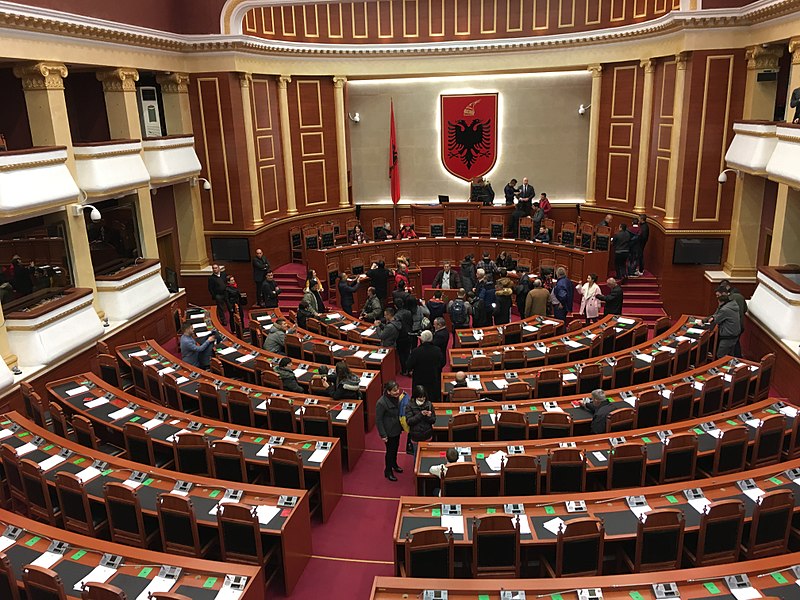The Albanian Parliament has changed the country’s electoral code, without it being a cross-party agreement. Under the new system, parties are banned from running together in a coalition during election time. This could have negative consequences for the country’s smaller political blocs.
Albania’s parties are known to team up during and after election time in order to form a stronger front against larger parties. Currently, the Socialist Party (SP) is the biggest with 74 out of 140 seats. The country uses the d’Hondt formula when allocating seats, which is a method that can work to the disadvantage of smaller factions and to the advantage of bigger ones. In Albania, this also means that the largest bloc even receives an extra seat. Before the constitutional change, the smaller parties were able to run together during elections and therefore work around the formula and obtain a higher number of seats.
Double disadvantaged
The d’Hondt method is used in 16 EU Member States, where many do not use pre-election coalitions either. It is favoured because it helps to create majority formations and thus caters towards a functioning government. However, this system has different consequences in Albania, since it only has one party with an absolute majority seat allocation. Not being able to run together means that the smaller parties are double disadvantaged namely, having a minor chance to ever become the ruling party and not being taking into consideration when Parliament votes for important constitutional changes. The last time that a constitutional change was adopted without a cross-party consent was 20 years ago.
Prime Minister Edi Rama legitimised his move by stating that the implementation of the new system forces the country into the OSCE framework. However, other party leaders have stated that they think the SP only applied the reforms to keep their majority in parliament. Lulzin Basha, the Democratic Party leader, also said that Rama has “shown the face of an autocrat”.
Consequences for EU membership?
The reactions from the European Union (EU) were mixed. EU ambassador to Albania, Luigi Soreca, said that the Union would accept the changes, but is disappointed that Rama did not put more time and effort into the matter so that a compromise between the different parties could be reached. On the other side, a member of the European People’s Party expressed that this move would likely hamper Albania’s EU accession. More recently, the EU Enlargement Commissioner Oliver Varhelyi stated that he thinks that Albania will start the accession talks this year.
Albania has been wanting to become an EU Member State since 2009, when it submitted the official application. The country was granted EU candidacy in 2014 and presented its draft negotiation framework in July 2020. During its candidacy there were multiple national points that Albania had to work on, including corruption, freedom of expression, judicial and public administration, revision of parliamentary rules and political dialogue. The EU’s progress report shows that the country has made improvements on most of these matters, which is why Varhelyi expects Albania to start the accession talks soon. However, the recent change in the constitution, adopted without a cross-party agreement, shows a lack of progress when it comes to improving political dialogue.
Sources: Albania Daily News, Balkaninsight1, Balkaninsight2, Balkaninsight3, European Commission, European Parliament
Image: Wikimedia



